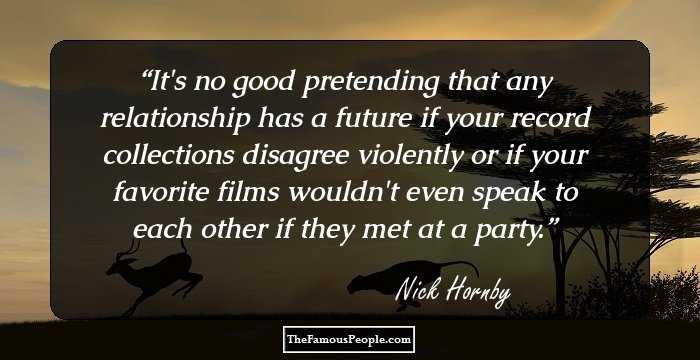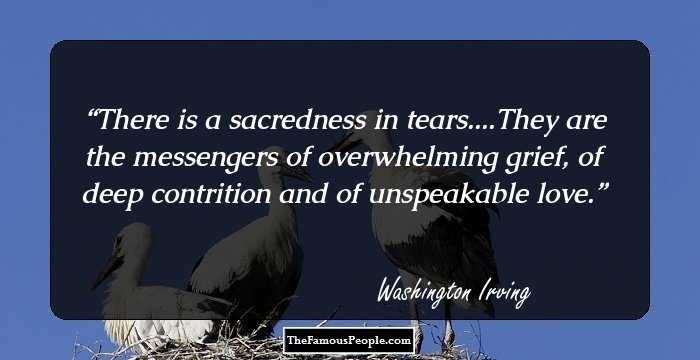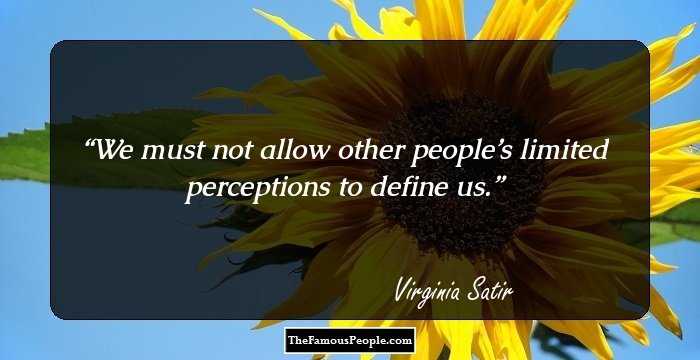
We must not allow other people’s limited perceptions to define us.
I want to love you without clutching, appreciate you without judging, join you without invading, invite you without demanding, leave you without guilt, criticize you without blaming, and help you without insulting. If I can have the same from you, then we can truly meet and enrich each other.
It is now clear to me that the family is a microcosm of the world. To understand the world, we can study the family: issues such as power, intimacy, autonomy, trust, and communication skills are vital parts underlying how we live in the world. To change the world is to change the family.
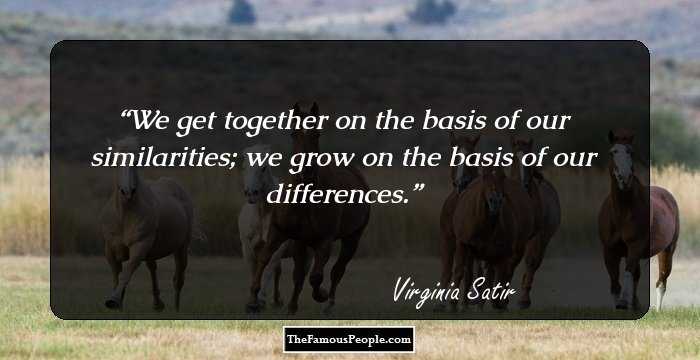
We get together on the basis of our similarities; we grow on the basis of our differences.

I want you to get excited about who you are, what you are, what you have, and what can still be for you. I want to inspire you to see that you can go far beyond where you are right now.
Feelings of worth can flourish only in an atmosphere where individual differences are appreciated, mistakes are tolerated, communication is open, and rules are flexible - the kind of atmosphere that is found in a nurturing family.
There are five freedoms: The freedom to see and hear what is; The freedom to say what you feel and think; The freedom to feel what you actually feel; The freedom to ask for what you want; The freedom to take risks on your own behalf.
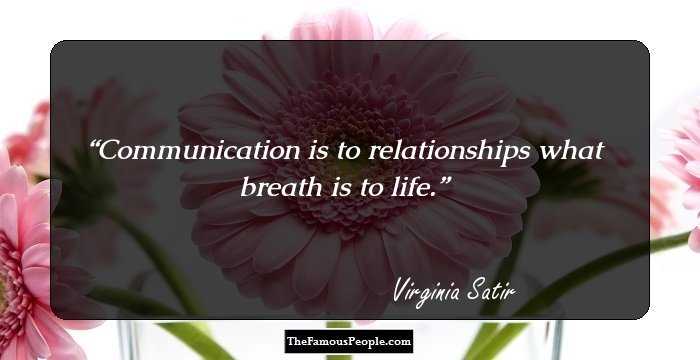
Communication is to relationships what breath is to life.
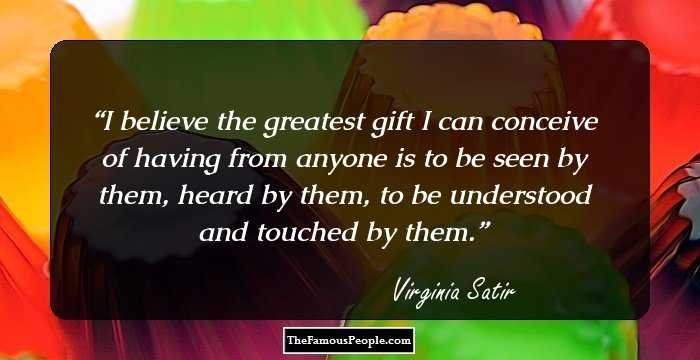
I believe the greatest gift I can conceive of having from anyone is to be seen by them, heard by them, to be understood and touched by them.

Your responses to the events of life are more important than the events themselves.
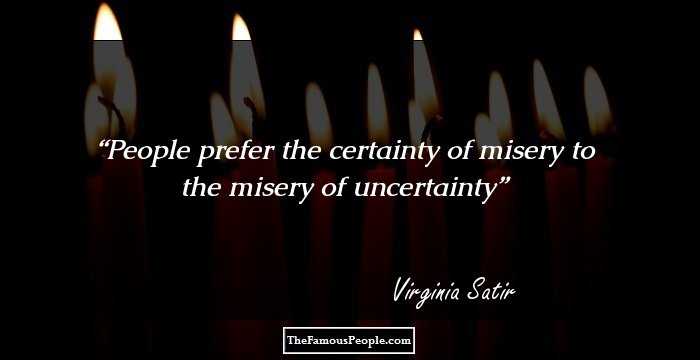
People prefer the certainty of misery to the misery of uncertainty
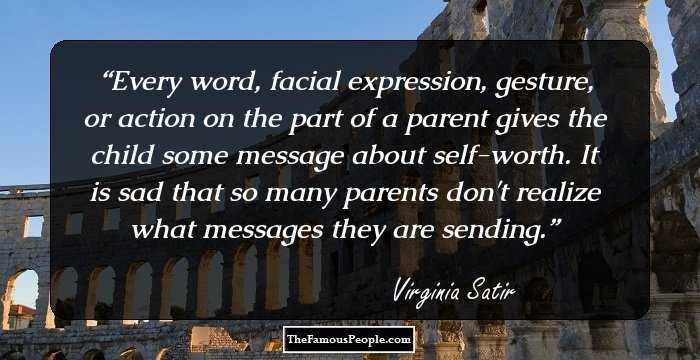
Every word, facial expression, gesture, or action on the part of a parent gives the child some message about self-worth. It is sad that so many parents don't realize what messages they are sending.
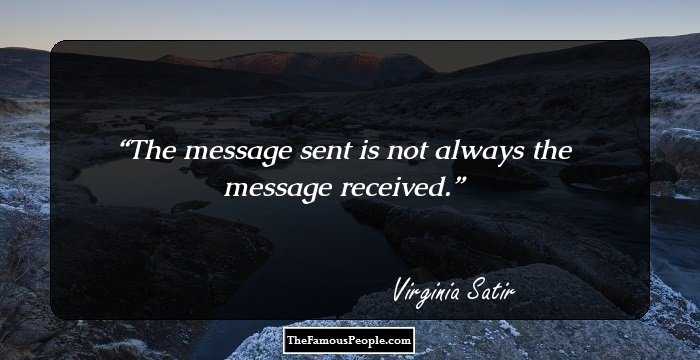
The message sent is not always the message received.
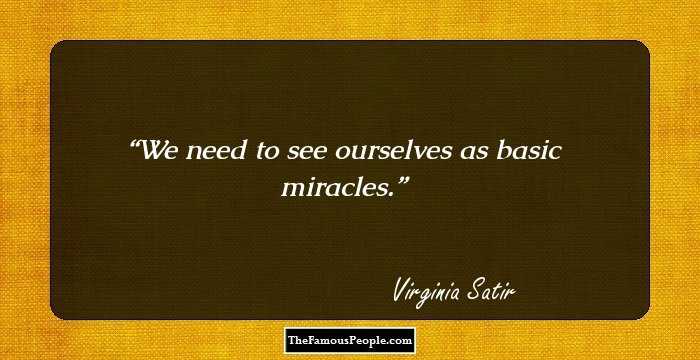
We need to see ourselves as basic miracles.
I regard (parenting) as the hardest, most complicated, anxiety-ridden, sweat-and-blood-producing job in the world. Succeeding requires the ultimate in patience, common sense, commitment, humor, tact, love, wisdom, awareness, and knowledge. At the same time, it holds the possibility for the most rewarding, joyous experience of a lifetime, namely, that of being successful guides to a new and unique human being.
Over the years I have developed a picture of what a human being living humanely is like. She is a person who understand, values and develops her body, finding it beautiful and useful; a person who is real and is willing to take risks, to be creative, to manifest competence, to change when the situation calls for it, and to find ways to accommodate to what is new and different, keeping that part of the old that is still useful and discarding what is not.
I think if I have one message, one thing before I die that most of the world would know, it would be that the event does not determine how to respond to the event. That is a purely personal matter. The way in which we respond will direct and influence the event more than the event itself.
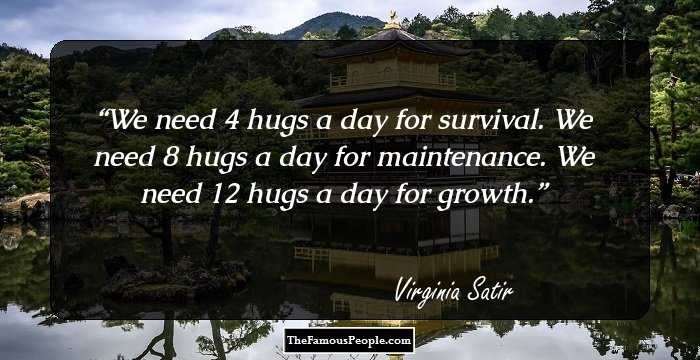
We need 4 hugs a day for survival. We need 8 hugs a day for maintenance. We need 12 hugs a day for growth.
The symbol in Chinese for crisis is made up of two ideographs: one means danger, the other means opportunity. This symbol is a reminder that we can choose to turn a crisis into an opportunity or into a negative experience.
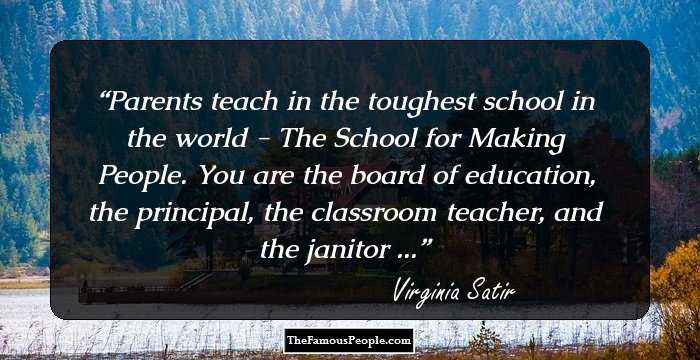
Parents teach in the toughest school in the world - The School for Making People. You are the board of education, the principal, the classroom teacher, and the janitor ...
In the nurturing family...parents see themselves as empowering leaders not as authoritative bosses. They see their job primarily as one of teaching their children how to be truly human in all situations. They readily acknowledge to the child their poor judgment as well as their good judgment; their hurt, anger, or disappointment as well as their joy. The behavior of these parents matches what they say.
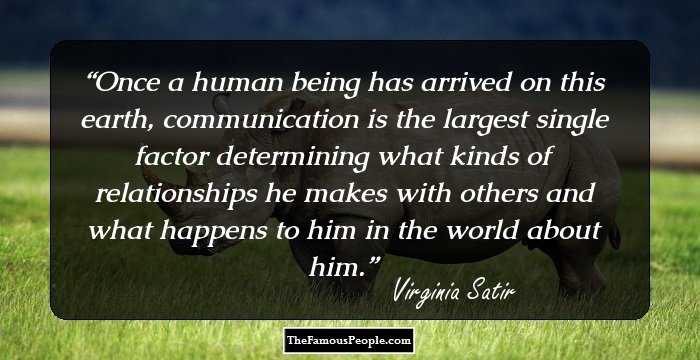
Once a human being has arrived on this earth, communication is the largest single factor determining what kinds of relationships he makes with others and what happens to him in the world about him.
I have talked about choosing rather than acting from compulsion. When you feel that you have to live according to someone else's direction or live so that you never disappoint or hurt anybody, then your life is a continual assessment of whether or not you please other people.
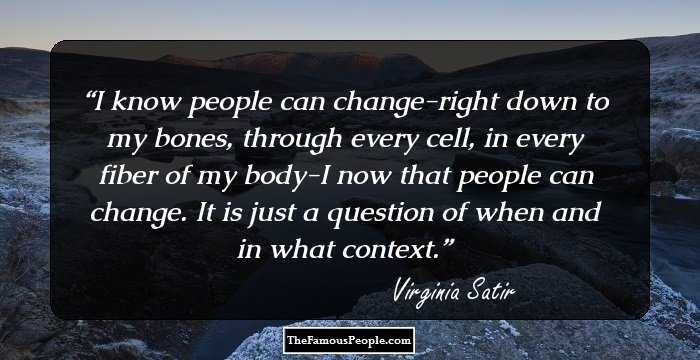
I know people can change-right down to my bones, through every cell, in every fiber of my body-I now that people can change. It is just a question of when and in what context.

Many people are living in an emotional jail without realizing it.
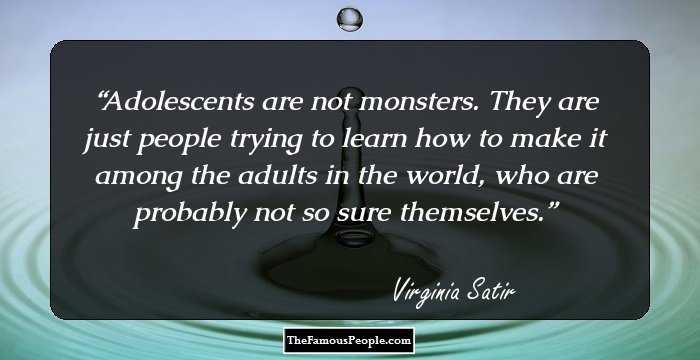
Adolescents are not monsters. They are just people trying to learn how to make it among the adults in the world, who are probably not so sure themselves.
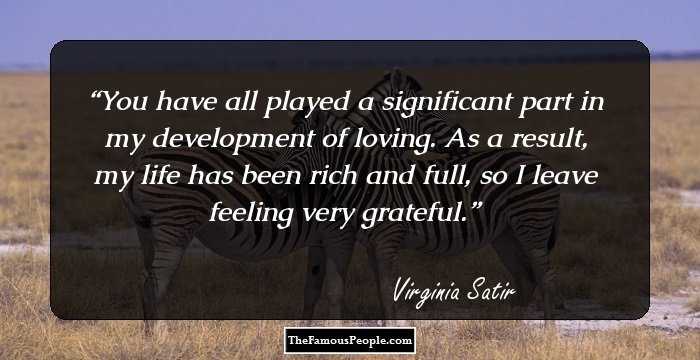
You have all played a significant part in my development of loving. As a result, my life has been rich and full, so I leave feeling very grateful.
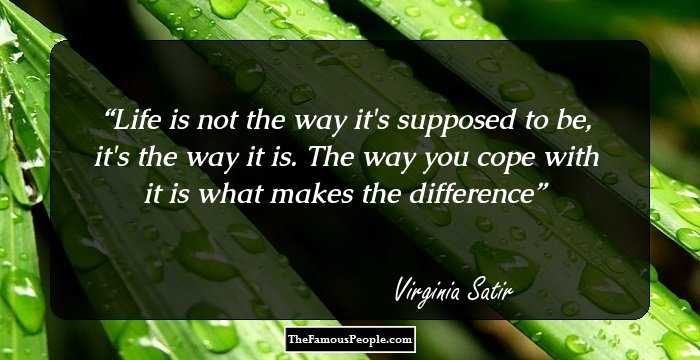
Life is not the way it's supposed to be, it's the way it is. The way you cope with it is what makes the difference
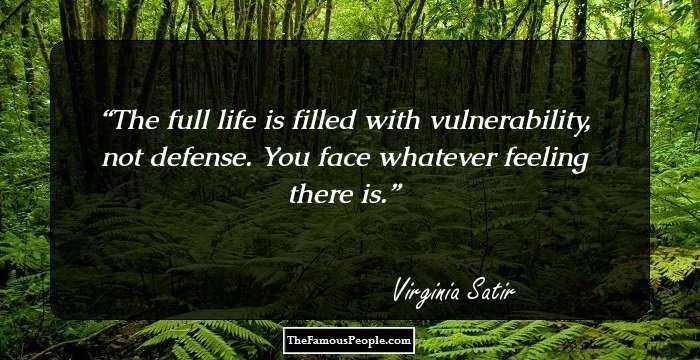
The full life is filled with vulnerability, not defense. You face whatever feeling there is.
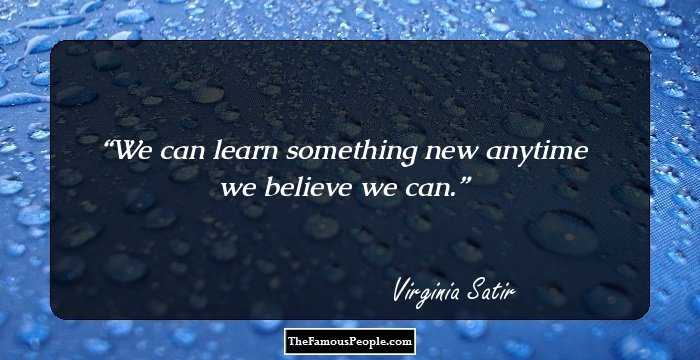
We can learn something new anytime we believe we can.



